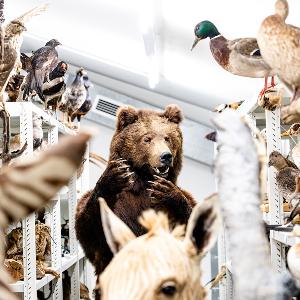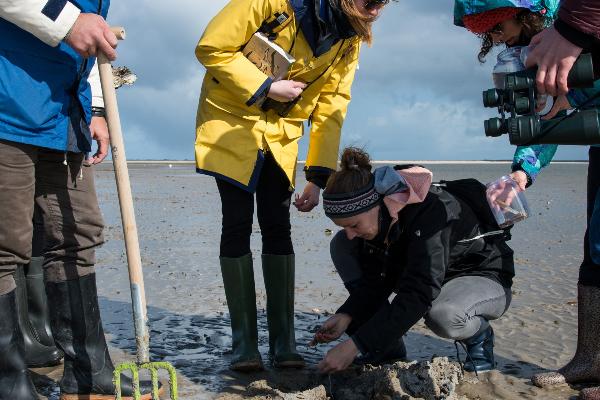
Zoology
Our research is at the interface between morphology, developmental biology, evolutionary biology, paleontology and ecology.
Zoology remains an important part of biology today because it studies animals in all their facets—from DNA to behavior. It provides the foundation for understanding biodiversity: animals shape ecosystems, ensure pollination, regulate populations, and serve as indicators of environmental change. Without zoological knowledge, nature conservation and climate research would be virtually impossible. Animals are also indispensable in medicine and biotechnology: model organisms such as zebrafish, mice, and fruit flies provide insights into development, genetics, and diseases. At the same time, behavioral research opens up new perspectives on communication, intelligence, and social structures—also in comparison to humans. Zoology thus combines classical species knowledge with modern methods such as genomics, AI-supported image analysis, and satellite data. It shows that understanding animals is not only scientifically exciting, but also crucial for sustainability and the future of our society.
Translated with DeepL.com (free version)
Fieldwork placements and excursions
They are valuable learning opportunities for combining theoretical knowledge with practical experience.
In the field, students learn to recognize habitats, identify species, and understand ecological relationships. Such observations are difficult to grasp in the lecture hall or from books. Direct experience not only deepens knowledge but also anchors it in the long term.
In addition, field trips promote exchange between teachers and students and encourage them to work together on biological issues. They are therefore an indispensable basis for building comprehensive biological knowledge and developing a deep understanding of nature.
Translated with DeepL.com (free version)
Members of the zoology groups
| Name | Tel | Position | |
|---|---|---|---|
| Matschiner, Michael | matschiner@bio.lmu.de | +49 89 2180 74134 | Chair |
| Heß, Martin | hess@bio.lmu.de | +49 89 2180 74130 | Professor |
| Haug, Joachim T. | jhaug@bio.lmu.de | +49 89 2180 74132 | Professor |
| Haug, Carolin | chaug@bio.lmu.de | +49 89 2180 74132 | Akademische Rätin |
| Muschick, Moritz | muschick@bio.lmu.de | +49 89 2180 74136 | Research Assistant |
| Neusser, Timea | neusser@biologie.uni-muenchen.de | +49 89 2180 74293 | Research Assistant |
| Maiditsch, Isabelle | maiditsch@bio.lmu.de | +49 89 2180 74225 | Postdoctoral Position |
| van Heteren, Anneke H. | vanHeteren@snsb.de | +49 89 8107 125 | |
| Gensler, Heidemarie | h.gensler@@bio.lmu.de | +49 89 2180 74174 | Technician |
| Schopf, Anika | anika.schopf@bio.lmu.de | science support staff |




